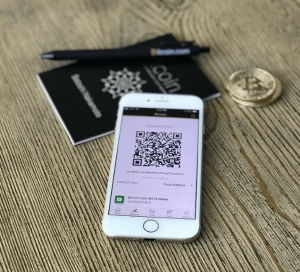The Different Types of Cryptocurrency Wallets
What is a cryptocurrency wallet?
First, let us start by explaining what a cryptocurrency wallet is. There are many different types of cryptocurrency wallets. They can be software based, hardware based, or paper based. Cryptocurrency wallets are categorized as “hot wallets” or “cold wallets”. Although they have different levels of security, they all essentially work in the same way. Cryptocurrency wallets interact with the blockchain to store, receive, and send/spend your cryptocurrency.
How do cryptocurrency wallets work?
Cryptocurrency wallets contain two unique alphanumeric identifiers (public keys and private keys). Your public key is used to receive funds so it is acceptable to share with others. You can share it with others to send you cryptocurrency or use it to send yourself cryptocurrency to that particular wallet. Your wallet’s private key is used to spend or send cryptocurrency out of your wallet. Therefore, your private key should be kept secret and safe. If you lose your private key, you will lose access to the cryptocurrency in that wallet.
Hot and cold wallets:
Hot wallets connect to the internet. They are convenient because they give you immediate access to your cryptocurrency. For instance, if you have a wallet app and scan or enter your public key at one of our Bitcoin ATMs, you are sending the cryptocurrency to your hot wallet.
Cold wallets do not connect to the internet. Cold wallets store keys offline, either on paper or on a hardware device. This feature makes them immune to hacks. They are great if you just want to buy cryptocurrency and HODL for long-term cryptocurrency investment purposes. You can still use your cold wallet’s address to buy cryptocurrency directly from our Bitcoin ATMs in New Jersey and Philadelphia.
Types of cryptocurrency wallets
Now that we’ve covered the basics of cryptocurrency wallets, let’s go over the different types. Keep in mind that they are all fundamentally the same. They all have public and private keys and they are all used to store, receive, and send cryptocurrency:
Mobile wallets
These wallets are the most convenient and most used cryptocurrency hot wallets because they give you instant access. Mobile wallets are apps that allow you to receive and send cryptocurrency right from your smartphone. For instance, when you sell Bitcoin through one of our Bitcoin ATMs, you will be able to send Bitcoin directly from your mobile wallet and receive cash from our Bitcoin ATM.
You should always backup your mobile wallet by following the backup instructions on your wallet app. There are many different cryptocurrency wallet apps for Android, Apple iOS, and Windows smartphones, such as Mycelium Bitcoin Wallet.
Paper wallets
Paper wallets are cold wallets that are simply a printed piece of paper that has your public key and your private key. They are secure because they keep your private key offline. However, if you lose it or damage it without knowing your private key, you will not be able to access the funds on it. Our Bitcoin ATMs allow you to create a new paper wallet and send the cryptocurrency you buy directly to it. Some mobile wallets allow you to transfer the cryptocurrency from your paper wallet to your mobile wallet. The process of transferring cryptocurrency from a paper wallet to a mobile wallet is fast and easy.
Hardware wallets
Hardware wallets are arguably the safest and best way to store your cryptocurrency. These wallets do not require batteries. You can always connect them to your computer or smartphone to manage your wallets. They are a secure option because they keep your private keys offline. You can purchase a good hardware wallet for around $100. The most common and reliable hardware wallets are the Ledger hardware wallets and the Trezor hardware wallets.
Desktop wallets
Desktop wallets are installed directly on your desktop and connect to the internet (hot wallets). They allow you to store your cryptocurrency private keys directly on your desktop, giving you full control of your assets. They also allow you to send and receive cryptocurrency directly from your desktop. There are different desktop wallets and they are available for most operating systems like macOS, Windows, and Linux. Some well-known desktop wallets are Electrum, Armory, and Atomic Wallet.
You should always practice safe security measures on your desktop or laptop. Have reliable antivirus, anti-malware, and firewall software installed and running at all times.
Web wallets
Web wallets are hot wallets because they connect to the internet. Most of them store your private keys in your web browsers and are either hosted or non-hosted. The hosted ones control your private keys and the non-hosted web wallets give you control of your private keys. You should practice the same security measures you would practice if you were to use a desktop wallet.
We hope you found this article about the different types of cryptocurrency wallets to be useful. Please visit our blog for more cryptocurrency tutorials and articles.


Is this only a once-off investment or is it a on going investment
Bitcoin and other cryptocurrencies can be purchased as an asset for investment purposes and you can purchase as many times as you’d like. Make sure you never send your bitcoin to anyone that claims to be an investor because they are scammers. Always use your own bitcoin wallet. Click here to learn more about the different types of bitcoin scams.